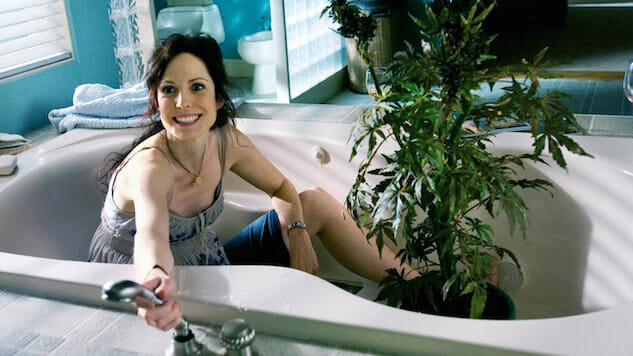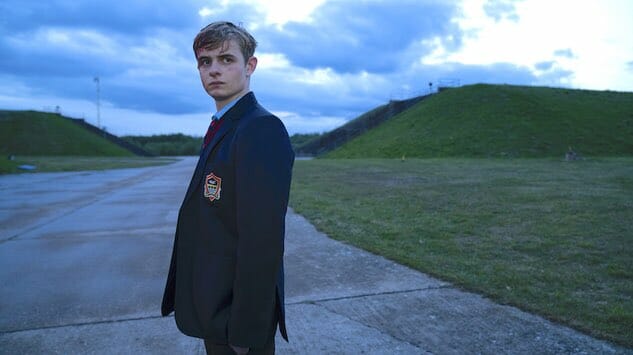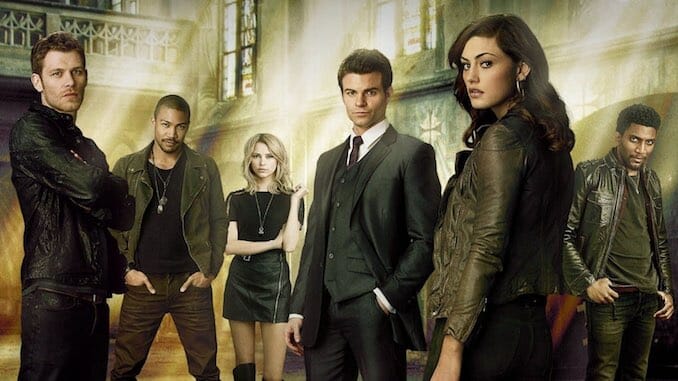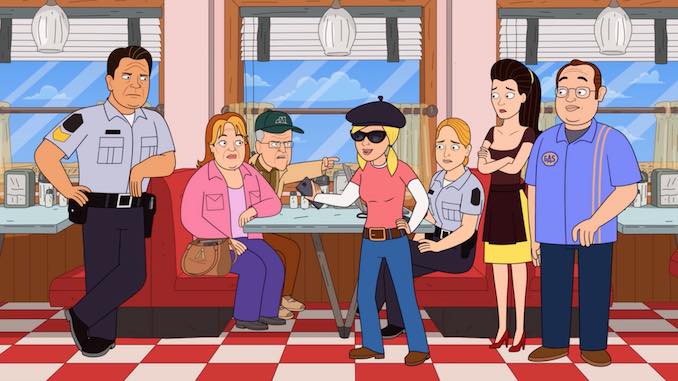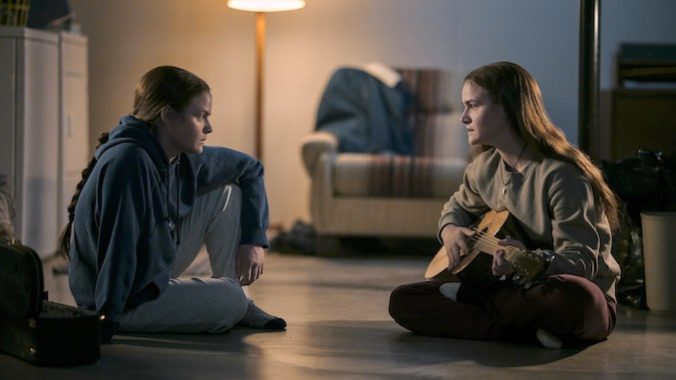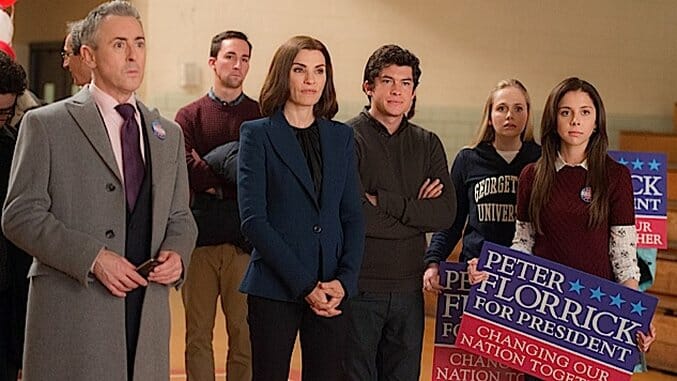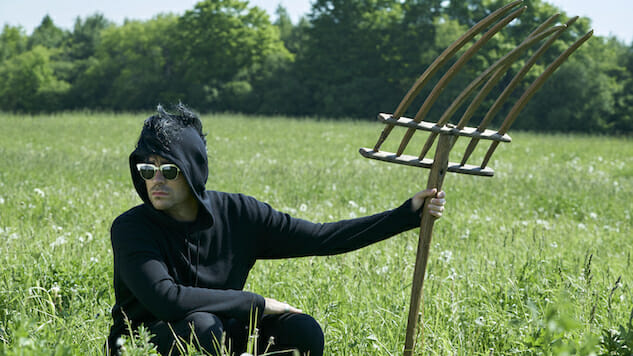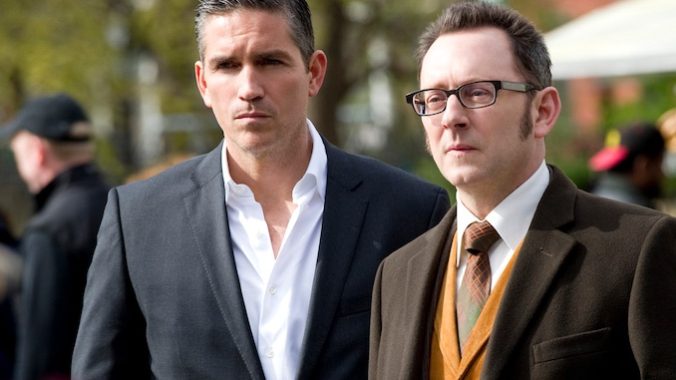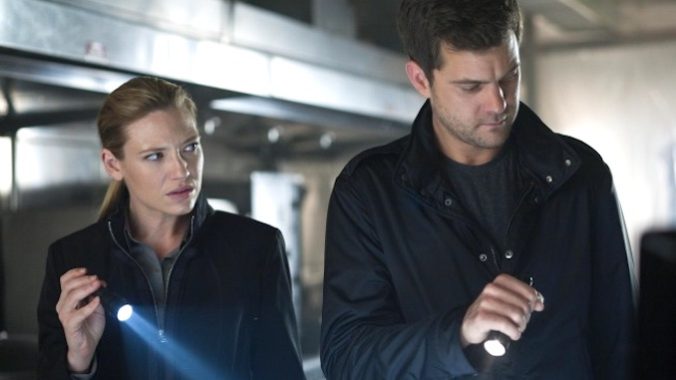The 20 Best TV Shows on Amazon Freevee (December 2024)
Photo Courtesy of Freevee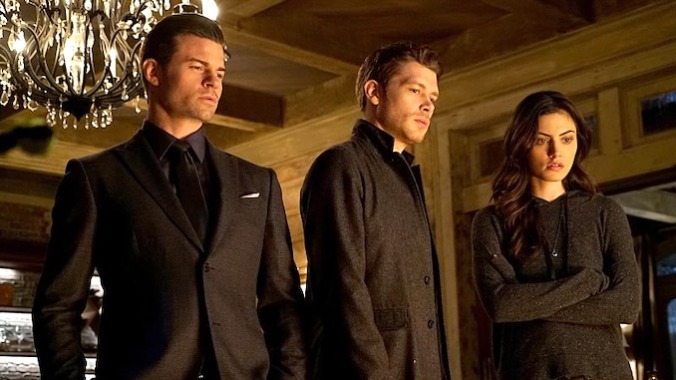
In addition to offering their paid Prime Video service, Amazon is also in the FAST (free, ad-supported streaming television) business with their free, ad-based platform, Amazon Freevee (née IMDb TV). FAST is on the rise, considering how each stream becomes profitable in comparison to the subscription model, but in comparison to its competition, Freevee seems like the most positive path forward in the newly-evolving FAST expansion. Boasting a stacked library of original series alongside some classic series, Freevee scored its first break-out hit with original series Jury Duty earlier this year (it’s even been nominated for an Emmy!), and shows no signs of slowing down. With so many options, Freevee’s originals and classic offerings are worth sticking out the ads for. And if you are more in the mood for a movie, Freevee has a wide selection for browsing as well.
While an Amazon account is required to view, no purchase is necessary to discover the wonders that Freevee has to offer—reachable through their website or their app, which is available on iOS, Android, and most smart TV devices. And if you’re already a Prime subscriber, Freevee can be easily found nested within the Prime Video app. Below, we have gathered the best shows to watch on Freevee, originals and syndicated series alike (and in no particular order), that you can watch for totally free.

Pretty Hard Cases
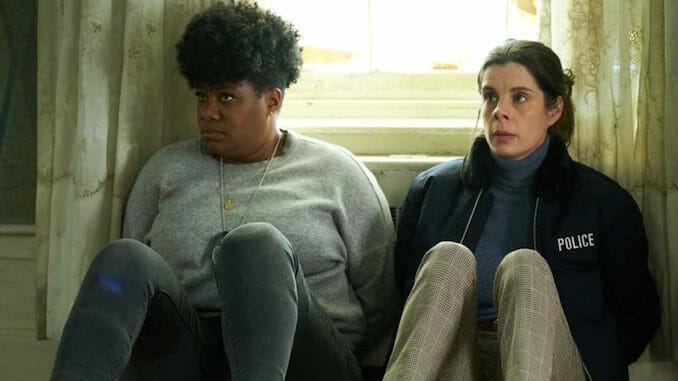
Starring Adrienne C. Moore (Orange is the New Black) and Meredith MacNeill (Baroness Von Sketchshow) as a comically mismatched pair of Toronto detectives—one irons her t-shirts! one wears mismatched socks!!—who are obliged to team up to take down a local opioid operation, Canadian import Pretty Hard Cases (née Lady Dicks) is, as one might expect with leads like Moore and MacNeill, extremely funny. I mean, there’s a reason the Odd Couple dynamic (especially in detective shows) is such a classic. And letting both halves of that dynamic be steered by women? You love to see it.
The strength of its explicitly diverse core cast, which includes both Hollywood vets like Karen Robinson (Schitt’s Creek) and Tara Strong (literally any cartoon you’ve ever watched) and Canadian stalwarts Al Mukadam, Daren A. Herbert and Dean McDermott, certainly helped. But ultimately it was the fact that series creators Tassie Cameron and Sherry White, who had just finished writing the first season when COVID locked the industry down in the spring of 2020, watched what happened with George Floyd and summer of reckoning that followed and took the same considered step back as B99 did, scrapping whole scenes and rewriting storylines to better address the rot of police brutality and systemic racism at the heart of North American-style policing.
The result? A complex, thoughtful (and still funny!) story that—though its moments of progressive catharsis do occasionally ring too much of fantasy to be satisfying—doesn’t pretend to have all the answers. A diverse police force helps, the series suggests, but it can’t solve everything. Letting women have institutional power helps, too, it argues, but it won’t fix what’s broken within that same institution’s basic structure. Because at the end of the day (tiny spoiler to follow), all you really need to get out of the kind of trouble that would derail pretty much any young, Black life is to be a white boy with ties to literally anyone in power. It’s infuriating. But at least Pretty Hard Cases understands why, and seems prepared to address it. —Alexis Gunderson
Numbers
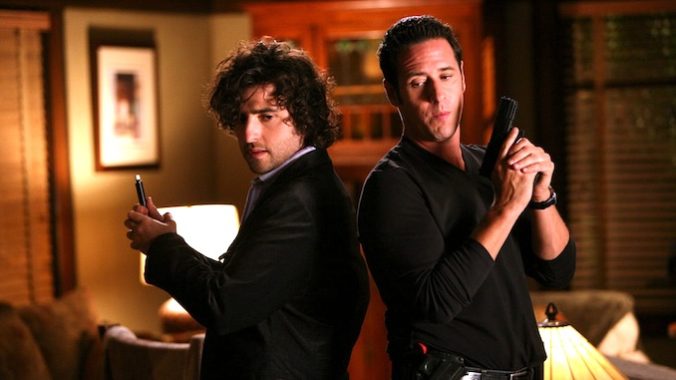
I watched Numbers almost exclusively through reruns on the ION channel, and every episode was a genuine delight. When FBI agent Don Eppes (Rob Morrow) is faced with a puzzling case, he calls in the help of his genius mathematician brother Charlie (David Krumholtz). By using various mathematical means and the help of his colleges at the fictional California Institute of Science, Charlie is able to parse out the means, motives, and moves of the criminals at the center of these various crimes. The series ran for six seasons on CBS before being canceled, but its time on the air allowed it to creatively blend one man’s brilliant mind with the FBI strategies of his brother, all while their father attempts to keep the peace between them. It’s a unique series that puts another interesting spin on the typical procedural structure, bringing a brainy dorkiness to a subgenre filled with smooth charm. —Anna Govert
Dinner with the Parents
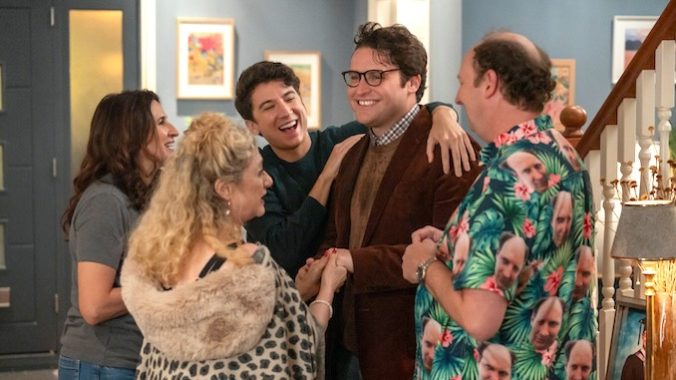
Every Friday night the Langer family—parents Jane (Michaela Watkins) and Harvey (Dan Bakkedahl), their sons David (Henry Hall) and Gregg (Daniel Thrasher), and wacky grandmother Rose (Carol Kane)—get together for dinner. And let’s just say these meals never go smoothly. In the premiere, David’s girlfriend dumps him minutes before she is supposed to meet his family and he must come up with a last minute replacement. Cringe worthy hilarity ensues. Fun fact: Henry Hall is the son of Julia Louis-Dreyfuss and Brad Hall. —Amy Amatangelo
The Twilight Zone (1959 and 2019)
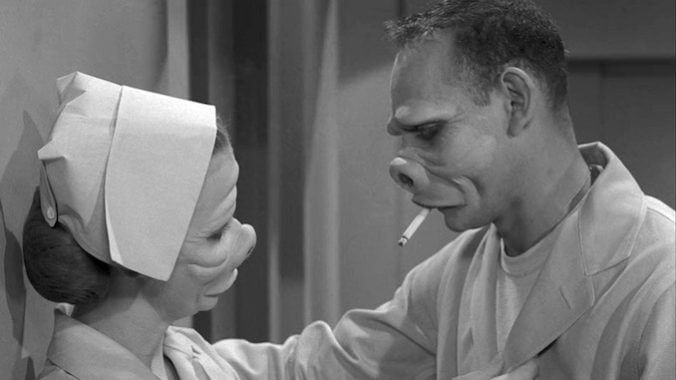
It is, in the estimation of any sane person, one of the greatest science fiction series of all time without a doubt, with its myriad episodes about technology, aliens, space travel, etc. But The Twilight Zone also plumbed the depths of the human psyche, madness and damnation with great regularity, in the same spirit as creator Rod Serling’s later series, Night Gallery. Ultimately, The Twilight Zone is indispensable to both sci-fi and horror. Its moralistic playlets so often have the tone of dark, Grimm Brothers fables for the rocket age of the ‘50s and ‘60s, urban legends that have left an indelible mark on the macabre side of our pop culture consciousness. What else can one call an episode such as “Living Doll,” wherein a confounded, asshole Telly Savalas is threatened, stalked and ultimately killed by his abused daughter’s vindictive doll, Talky Tina? Or “The Invaders,” about a lonely woman in a farmhouse who is menaced by invaders from outer space in an episode almost entirely without dialog? Taken on its own, a piece of television such as “The Invaders” almost shares more in common with “old dark house” horror films or the slashers that would arrive 20 years later than an entry in a sci-fi anthology. —Jim Vorel
Leverage and Leverage: Redemption
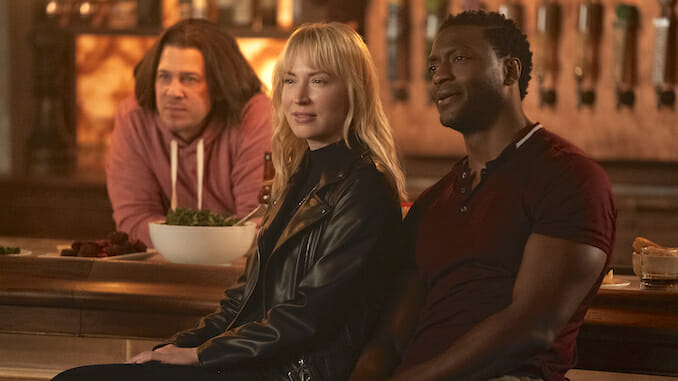
The original Leverage, which ran for five seasons on TNT, followed a group of thieving masterminds who became modern-day Robin Hoods by pulling elaborate scams on rich, greedy, and corrupt people in order to give that money to those in need. Led by former insurance investigator Nate Ford (Timothy Hutton) and joined by “The Grifter” Sophie (Gina Bellman), “The Hacker” Alex (Aldis Hodge), “The Hitter” Eliot (Christian Kane), and “The Thief” Parker (Beth Riesgraf), each episode would follow a fun “con-of-the-week” format that (along with its well-rounded characters and witty writing) catapulted it to cult status. Leverage: Redemption, Freevee’s 2021 revival series, picks up a year after Nate’s death, as Sophie brings the band back together to do some more good for the world. Like most revivals, the series doesn’t fully capture the charm of the original, but it is still a hell of a good time. —Anna Govert
Sprung
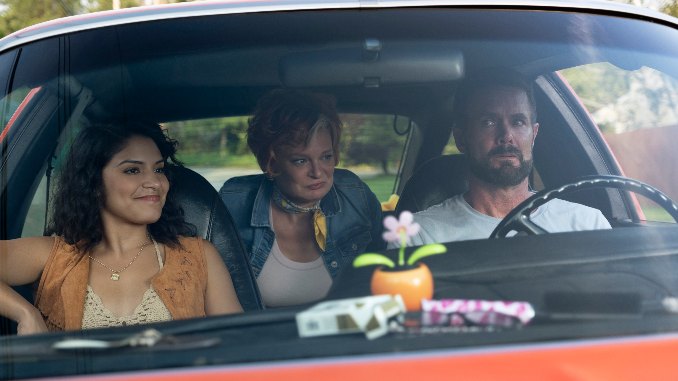
After finding themselves released early from their sentences in the first few weeks of pandemic for “health and safety” reasons—an official action which amounts to more or less shoving half of the (conveniently co-ed) prison’s population through the front gates with nothing more than a “good luck!” and the clothes they came in with—a trio of non-violent offenders (Garret Dillahunt, Shakira Barrera, and Phillip Garcia) in rural Western Maryland end up banding together. First it’s to find a safe spot to “shelter in place” during lockdown, then it’s to take advantage of COVID chaos by doing enough crime that they can support themselves in a job market hostile to anyone with a criminal record. If this sounds like a tough nut to crack jokes from, well, you’re not wrong! But with Greg Garcia—the mind behind My Name is Earl, Raising Hope and The Guest Book—leading Sprung’s creative vision as creator, director, and primary writer, the fact that the limited Freevee comedy series ends up threading the absurdly dark/warmly funny needle isn’t surprising. —Alexis Gunderson
Young Rock
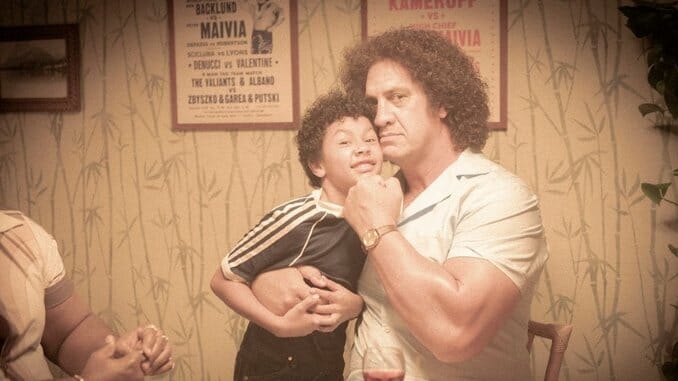
A cute and nostalgic network TV journey through a celebrity’s early years would probably not work under any other circumstances than those of Young Rock. The NBC series brings together the comedy savvy of Nahnatchka Khan (Don’t Trust the B— in Apt 23 and Fresh Off the Boat) and the well-established charisma of wrestler-turned-actor Dwayne “The Rock” Johnson, hopping through several timelines to give a colorfully embellished but seemingly emotionally genuine survey of The Rock’s childhood.
There are plenty of Easter eggs for wrestling fans in particular, who will undoubtedly enjoy (or bristle) at depictions of famous figures like André the Giant, the Iron Sheik, and Macho Man Randy Savage. Even for those like myself who have no real context for the history of the industry being represented, it all helps build out Young Rock’s candy-colored, comedically-heightened world.
While fans of Khan’s previous work may be disappointed by a dulling of her signature surrealist humor, there are still some sharply funny moments throughout Young Rock, and the show is certainly brimming with warmth. Johnson is charming as always, and he manages to come off as genuine. The first episode’s title, “Working The Gimmick,” really sets up a wary expectation for all that follows. But the goal of wrestling is entertainment, and Young Rock provides that in spades; it’s a sweet show, and earnestly likable. So even if viewers do feel like we’re being worked, do we mind? —Allison Keene
Primo
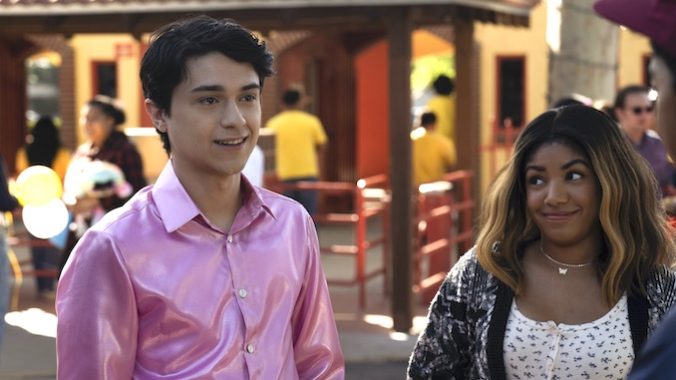
Freevee’s original comedy Primo, the semi-autobiographical TV series created by writer Shea Serrano and co-produced by Mike Schur (of Parks and Recreation and The Good Place fame), is a genuine delight. The comedy centers on the life of 16-year-old Rafa, nicknamed Primo, a Mexican-American growing up with a single mom and five crazy uncles in San Antonio. The show is funny, heartfelt, and loaded with complex and interesting characters. The series, which consists of 8 half-hour episodes, is a quick binge, but guaranteed to provide laughs alongside its heartwarming moments. —Terry Terrones and Anna Govert
Bosch: Legacy
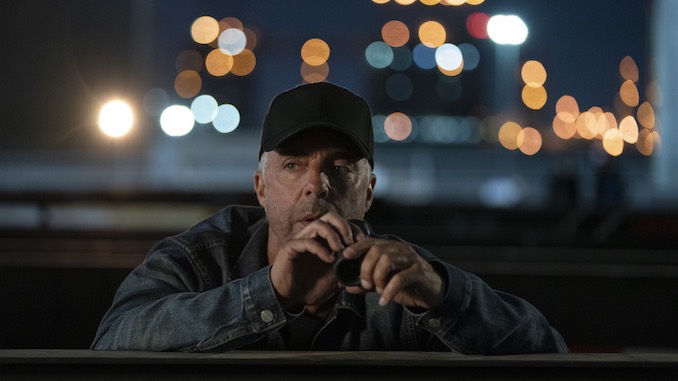
When Prime Video’s Bosch took its final bow back in 2021, it did so as the streamer’s longest running Original series. Seven seasons! In streaming years, that’s nearly a full Supernatural. And yet, even fitting that much story under their belt, the show’s creative team hadn’t even come close to matching either the length or breadth of Michael Connelly’s source material. And so, following Harry Bosch’s move to the private sector at the end of the flagship Bosch, Eric Overmeyer, Tom Bernardo, and Connelly, himself, moved over to Freevee and developed Bosch: Legacy, a project that is less “spin-off” than it is only slightly evolved continuation—down, even, to the moody, kaleidoscopic title sequence. Starring Titus Welliver as Bosch (now a private detective), Madison Lintz as his daughter, Maddie (now, confoundingly, a rookie LAPD officer), and Mimi Rogers as Honey Chandler (still a lawyer, but on the hunt for revenge)—all three reprising their roles from the original—Legacy picks up literally where Bosch left off. And while Freevee’s commercial format forces a more action-movie rhythm than feels natural for a Bosch project, the joy of being able to watch Harry Bosch stick screws into the corrupt heart of the LAPD is worth the trade-off. —Alexis Gunderson
Hell on Wheels
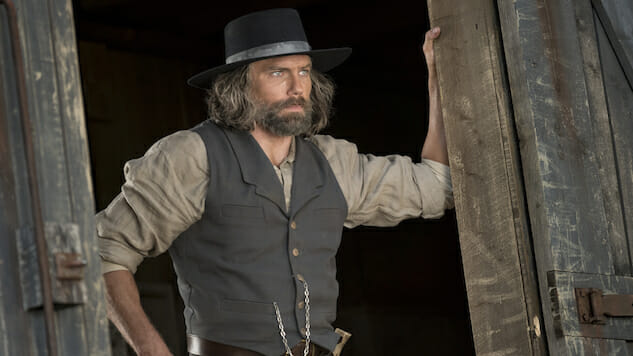
Like Rectify, Hell on Wheels’ availability on Netflix gave it a fighting chance at wider, belated recognition. Not that it’s at Rectify’s level, or even in its time period. But this Western—which dramatized the lives of real and fictional players during the construction of competing, cross-country railroads after the Civil War—was never less than a richly sourced imagining of our nation’s great expansion West, with a few can’t-miss psychopaths and tortured heroes for good measure. Its final season never relented until the final spike was driven into the last slat of Union Pacific track, detouring only to resolve long-standing conflicts and foreshadow the challenges America was then readying to stare down. Anson Mount, as Civil War vet-turned-vengeful gunslinger-turned unlikely tycoon Cullen Bohannon, carried the final episodes through their bloody, heat-stroked twists and turns. And there may never be as resilient and nightmarish a mortal villain as Christopher Heyerdahl’s Thor Gundersen. Just don’t call him The Swede. —Kenny Herzog
Jury Duty
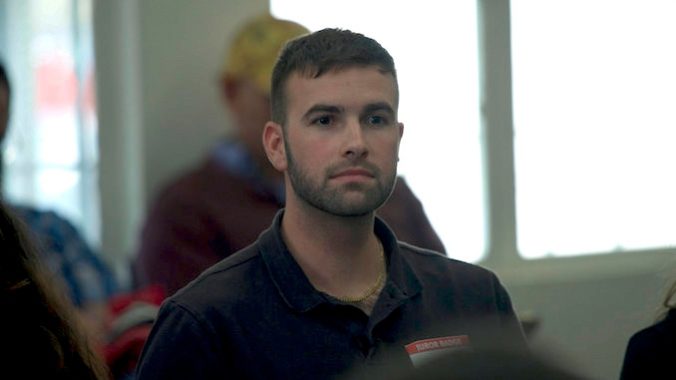
At the heart of Freevee’s Jury Duty is a good man, and that man’s name is Ronald Gladden. Ronald is the only non-actor participating in what he truly believes is a very real stint performing his civic duty in what he believes is a real court case. Unfolding in cringe-worthy hilarity, Jury Duty pushes its actors (including James Marsden as himself) and Ronald to the brink in order to complete a once-in-a-lifetime TV experiment. And largely, that experiment has paid off, with the series receiving a number of Emmy nominations, including an acting nomination for Marsden. No matter how you feel about its sometimes questionable ethics, Jury Duty is Freevee’s biggest break-out hit to date, and a series that finally put them on the streaming map. —Anna Govert
-

-

-

-

-

-

-

-

-

-

-

-

-

-

-

-

-

-

-

-

-

-

-

-

-

-

-

-

-

-

-

-

-

-

-

-

-

-

-

-

